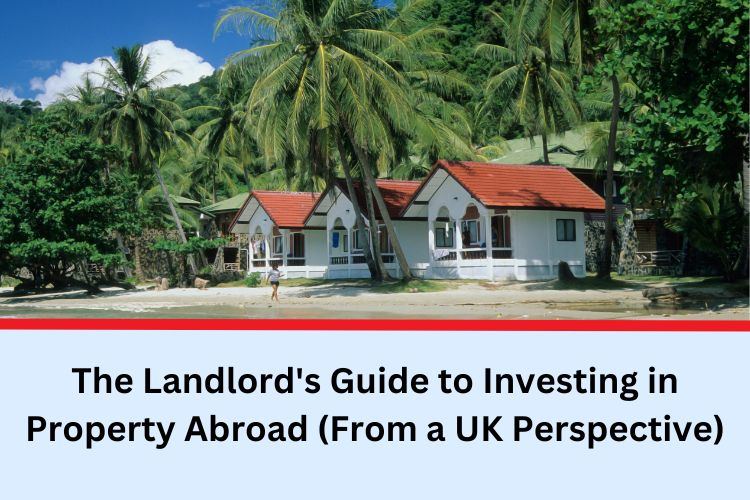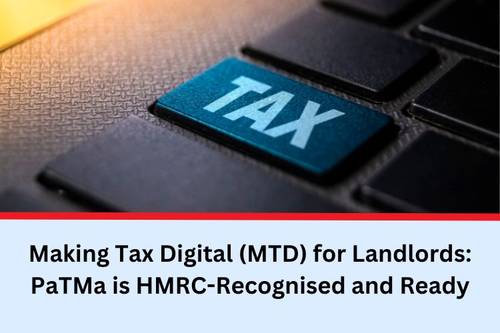More and more UK landlords are starting to look beyond Britain’s borders in search of better returns, more affordable investment opportunities, and a little diversification magic. But investing in property abroad is a very different beast to buy-to-let in Birmingham or managing an HMO in Huddersfield. So what do you need to know before you start eyeing up that charming Spanish apartment or city flat in Lisbon?
In this guide, we’ll cover the real pros and cons, what kind of returns you can expect, how the rental rules vary from country to country, and exactly what steps to take if you’re serious about buying overseas.
Why UK landlords are looking overseas for property investment
There’s a growing trend among UK landlords and investors who are looking to diversify by purchasing properties abroad. Sometimes it’s about better yields. Sometimes it’s because the upfront costs are lower. And sometimes, it’s simply about spreading risk across multiple markets and currencies.
If you’ve already got a few properties in the UK, adding one abroad could balance your portfolio, especially if the market here feels saturated, over-regulated, or just not offering what it used to. Plus, there’s something quite appealing about a rental property you can also use for a sneaky long weekend now and then.
The benefits and risks of buying investment property abroad
Let’s talk about the upside first. In some countries, you can get a decent property for significantly less than what you’d pay in the UK. Think city-centre apartments in Eastern Europe, student flats in Germany, or holiday lets in Southern Europe. Yields can look really attractive on paper. There’s also the bonus of investing in a growing market where capital appreciation is more likely.
But, there’s always a but, there are downsides too. For one, taxes get more complicated when you’re dealing with two different countries. You’ve got to think about double tax treaties, foreign exchange fluctuations, and the fun that is navigating unfamiliar legal systems. Plus, managing a property remotely means either paying for a local agent you trust or dealing with long-distance headaches when something goes wrong.
Rental rules and tenant rights vary wildly depending on the country
In the UK, most landlords have a pretty solid understanding of their rights and responsibilities. Overseas? It’s a whole new game. Tenant protections can be much stronger in some places (like Germany, where it can be very difficult to evict a tenant), while other countries may be far more landlord-friendly (hello, parts of the USA).
Tourist-heavy countries often have separate rules for short-term lets versus long-term residential contracts. Spain, for example, has regions that heavily restrict Airbnb-style letting, while others are wide open. France requires you to register rentals in many cities, and tax obligations can vary based on how the property is let.
Before buying anywhere, it’s essential to understand not just the laws but the culture of renting in that country. Some tenant expectations might be very different from what you're used to, and the timelines for things like repairs or evictions may not be as quick or straightforward.
Are the returns actually better abroad?
Sometimes, yes. But the headline figures don’t always tell the full story. You might see a 7% yield advertised, but once you account for management fees, property taxes, insurance, and currency conversion costs, that return could shrink significantly.
On the other hand, in some locations, the rental demand is consistent year-round and competition is low, meaning your occupancy rate might be higher than anything you’d get in the UK. Capital growth can also outpace UK averages in emerging markets, though that comes with added risk.
Ultimately, it’s about understanding the real return after costs and choosing a country or city where the numbers hold up even when you factor in everything else.
How long does it take to buy a property overseas?
Short answer: longer than the UK, usually. Expect 2 to 6 months in most stable EU countries. That timeline can stretch if you’re dealing with additional paperwork, language barriers, visa requirements, or need to set up a local bank account to make payments.
Some countries also require a notary to oversee the sale, or you may need an official translator. Even opening a bank account as a non-resident can be a surprisingly lengthy process in some jurisdictions. The key is not to rush, build in extra time and always get independent legal advice.
Common pitfalls when buying abroad
The most common trap is relying solely on glossy developer brochures or estate agents who promise "guaranteed returns." Just like in the UK, you need to do your due diligence, ideally more of it. Always get an independent valuation, understand all local taxes and charges, and never skip a building survey if one is available.
Also watch out for tricky resale rules. Some countries have restrictions on foreign owners reselling within a certain timeframe, or charge hefty exit taxes. And be wary of any scheme that sounds too good to be true, because if it’s being marketed hard to overseas buyers, it might be because local buyers won’t touch it.
What happens when you want to sell your overseas property?
Selling abroad can be straightforward, but not always. If you bought in a location with strong foreign investor demand, you might find it easy to resell. But if you bought in a niche market or rural area, it could sit on the market for months.
You’ll also need to factor in capital gains tax (in both countries), estate agent fees, notary fees, and any local legal requirements. Plus, check if there are any restrictions on repatriating funds some countries make it harder to transfer profits back to the UK.
Ready to get started? Here's what to do next
If you're still feeling drawn to investing overseas, here’s your action plan:
- Get clear on why you want to invest abroad: is it yield, growth, lifestyle, or diversification?
- Choose a specific country and start consuming everything you can: blogs, expat forums, Facebook groups, local news.
- Speak to an international property lawyer and tax advisor before you start viewing.
- Consider taking a trip to get a feel for the area and meet local agents or property finders.
- Start building your local team: you’ll need a solicitor, a surveyor (if available), and a property manager you trust.
Final thoughts: Is buying abroad right for you?
Buying property overseas can be an amazing opportunity, but only if you go in with your eyes open. It's not a guaranteed route to higher returns, and it’s definitely not hands-off. But for landlords who enjoy learning new markets, want to balance out their UK exposure, or just fancy a new adventure, it can be a powerful move.
If you’re managing properties both here and abroad, the admin can pile up fast. The good news is, PaTMa Property Manager is built to help you simplify that chaos. From tracking rent payments to storing legal docs, it’s your property portfolio all in one place, no matter where your investments take you.




